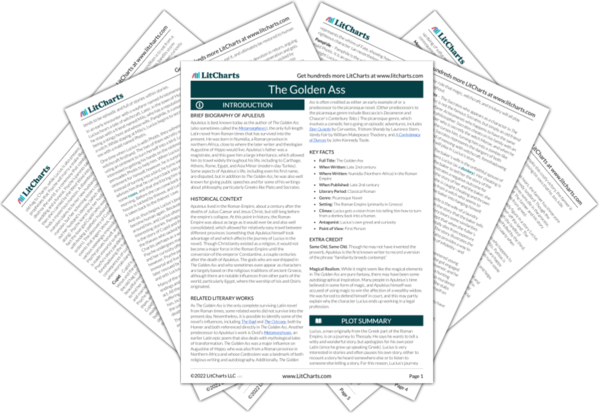AI ToolsNew
Tools to make learning and teaching easier
|
Previous
Book 8
|
The Golden Ass: Book 9 Summary & Analysis |
Next
Book 10
|


Upgrade to unlock the analysis and theme tracking for all of The Golden AssThe Golden Ass!
Get LitCharts A+